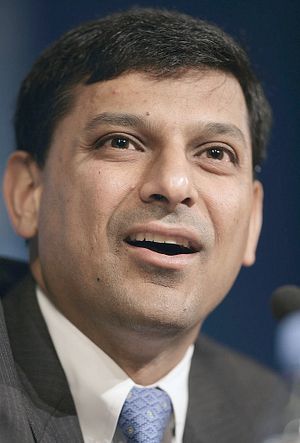As usual, a few updates on South Asia from across the Internet:
Over at the Financial Times, James Crabtree recounts an amicable conversation over lunch with Raghuram Rajan, the chief of the Reserve Bank of India, India’s central bank. The conversation reveals Rajan’s read on the Indian economy and the problems it faces from a looming global deleveraging, precipitated by the U.S. Federal Reserve suddenly raising interest rates. Rajan also describes the results of India’s May elections–which resulted in Narendra Modi and the BJP coming to power–as the “single biggest positive development for the economy.” Rajan also notes: “I understand there is some disappointment amongst investors about the pace of change, but their expectations were unrealistic … You’re not going to change the face of the economy overnight.” He is also remarkably frank about his distaste for India’s “venal politicians”–a phrase that now seems to be ingrained in his vocabulary. Rajan hypothesizes that an “unholy nexus” exists in India between corrupt politicians and crony capitalists: “Poor public services, politician fills the gap. Politician gets the resources from the businessman, politician gets re-elected by the electorate for whom he’s filling the gap. And electorate turns a blind eye to the deals done with the businessman … Many business groups treat public sector banks as their equity kitty.” He concludes: “So it’s heads I win, tails you lose. And I want to change that.”
So far, we haven’t seen too many examples of the Bharatiya Janata Party’s Hindu nationalism appear in India’s foreign policy since the party came to power in May. However, recent comments by Indian External Affairs Minister Sushma Swaraj on Thursday at the India-League of Arab States Media Symposium suggested that India’s ‘Hindu’ identity was less religious and more geographic–an idea espoused by some early Hindu nationalist thinkers, including Vinayak Damodar Savarkar. Swaraj supported her assertion by noting that several “illustrious families in Arab world have surnames ‘al-Hindi.'” She also noted the popularity of name “Hind” for Arab women. Swaraj’s comments were largely perfunctory in her remarks. In the same speech, Swaraj conveyed India’s concern about growing Islamic extremism in the Middle East.
Over in Afghanistan, local officials report that the Taliban’s annual seasonal increase in offensives against the government (beginning usually with the “spring offensive“) are more serious this year than normal. The uptick in intensity could represent an attempt by the group to make the most of the political confusion gripping Kabul as an audit continues over the results of the presidential run-off election. Additionally, the group looks to make gains as U.S. and NATO troops prepare to withdraw from the country for good.
Pakistan’s political crisis continues. On Thursday, Pakistani lawmakers unanimously passed a resolution declaring that it would be unconstitutional for Sharif’s government to resign on the basis of nothing but street protests. The lawmakers noted that it would additionally be unconstitutional to dissolve parliament on that basis.
Also, in case you missed it, Sadanand Dhume has an excellent piece over at Foreign Policy, which provides a handy cheat sheet for everything that’s wrong with the Congress Party in India. Dhume ends with the following warning: “The end of the Nehru-Gandhis has been predicted many times before. But this time it may be true.”

































